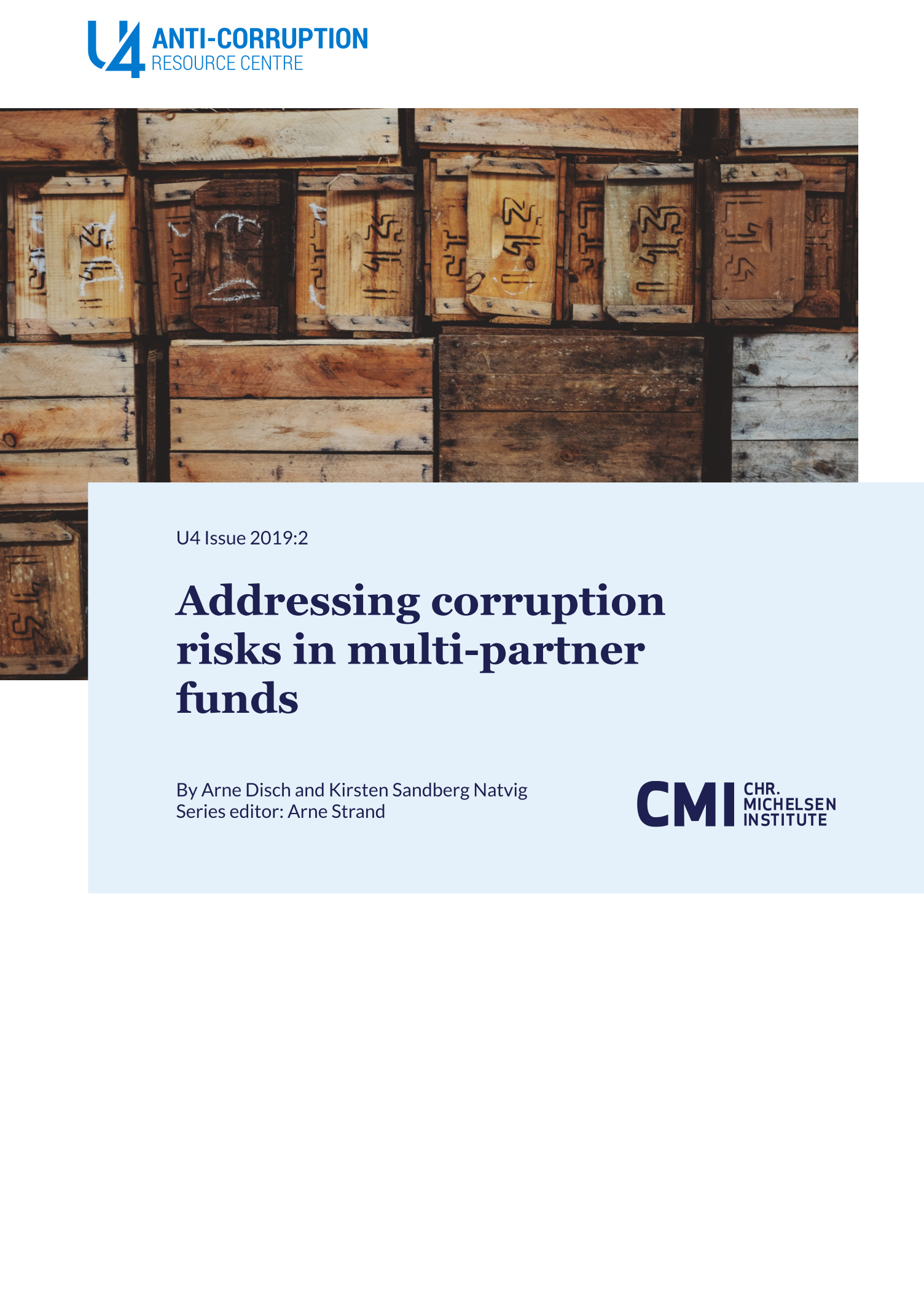Main points
- The donor community is increasingly relying on multi-partner funds (MPFs) to address fragile situations and complex global challenges such as health pandemics. At the same time, new modalities and partners for delivering results are evolving, providing a more complex picture of actual delivery chains, and hence new risks as well.
- Different MPFs address these risks differently. The traditional MPFs under UN or World Bank administration focus on fiduciary responsibilities. More recent funds with sector focus provide a more holistic analysis of risk related to attainment of actual objectives, and assess possible trade-offs to achieve these.
- Donors remain focused on financial probity – ‘zero tolerance for corruption’ – and have so far been less engaged in discussing trade-offs.
- A fundamental concern is achieving a shared understanding of risk appetite and risk sharing between the stakeholders to an MPF: the funding partners, the MPF administrator/trustee, the implementation partners, national authorities, and intended beneficiaries.



